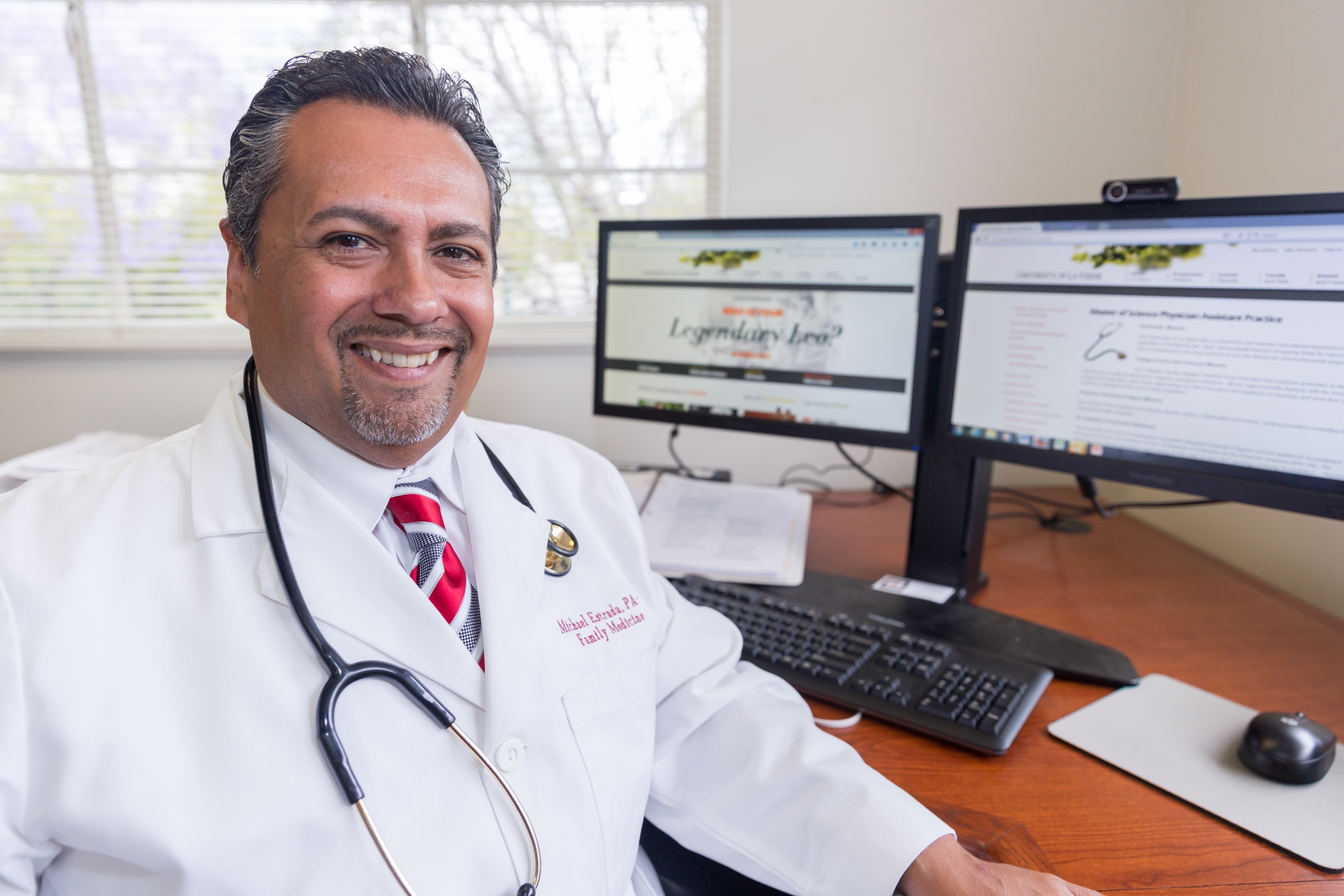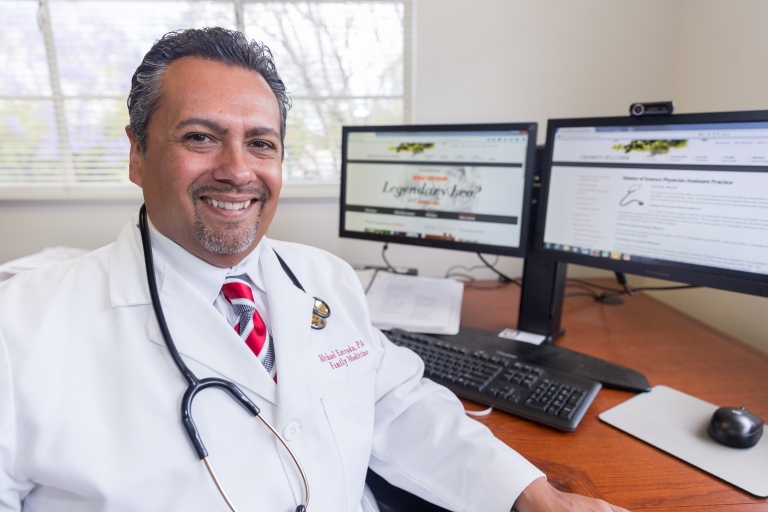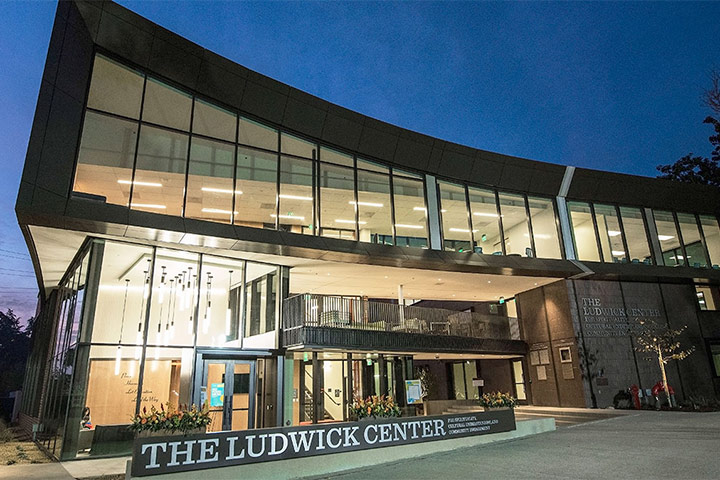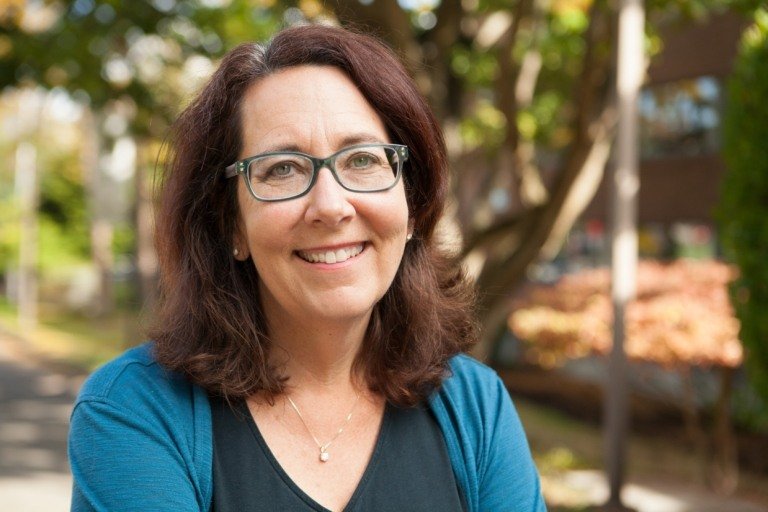University Launches Physician Assistant Program

 Michael Estrada’s life changed in the late 1980s when a train crashed into a disabled 18-wheel big rig in Central California.
Michael Estrada’s life changed in the late 1980s when a train crashed into a disabled 18-wheel big rig in Central California.
The aspiring physician was taking a break from biology courses at the University of La Verne to work as a volunteer Emergency Medical Technician in Soledad when that call came. He took the badly-injured driver to an urgent care clinic, since the nearest hospital was 50 miles away and no helicopters were available.
Estrada watched as a man in scrubs saved the patient’s life.
“I asked the doctor, ‘What medical school did you go to?’ He said ‘I’m not a doctor – I’m a physician assistant,’” Estrada said. “It was at that point that I saw this was something I could do.”
Estrada, who went on to be a successful private-practice physician assistant for 24 years, now leads the University of La Verne’s Master of Science Physician Assistant Practice degree program.
Duke University introduced the physician assistant profession in 1967 as a way to fast-track students into medical jobs for underserved communities. While it can take around 16 years of education to become a doctor, physician assistants with an undergraduate degree can begin practicing after about two years of graduate study. They work as part of a team with a doctor, and have the ability to diagnose and treat illnesses as well as prescribe medication. They are not licensed to perform surgery, but can assist a doctor with surgical procedures.
The program is one example of the University’s commitment to Convergence, an initiative aimed at providing skilled and diverse health care professionals to serve Inland Southern California residents. More than 30 organizations – including higher education and corporate leaders – announced in September 2015 their commitment to creating programs under the initiative.
“Support for Convergence from Inland Southern California entities continues to grow as more and more leaders in the health care industry and higher education realize the importance of training more people to serve the medical needs of our region,” said University of La Verne President Devorah Lieberman. “The physician assistant program is an important step in meeting those needs. It is a program that aligns perfectly with the university’s mission”
Physician assistant jobs experienced an 18 percent increase in the Inland Empire between 2011 and 2016, according to a Centers of Excellence study called “Health Care Industry and Occupations in the Inland Empire.” There were 831 positions available in the region in 2011, spiking to 984 five years later.
The University of La Verne’s intense 27-month program consists of academic and clinical coursework. It also includes opportunities for military veteran students in the program to assist wounded soldiers during clinical rotations at sites such as Casa Colina Hospital and Centers for Healthcare in Pomona. Students will be required to complete 118 units to receive a master’s degree.
Courses in the first year cover subjects such as human anatomy and physiology, general medicine and clinical procedures, while second-year students will be placed in supervised clinical rotations and learn about primary care, internal medicine, pediatrics, general surgery and other subjects.
In the end, students will discover the hard work was worth it, Estrada said.
“It provides them a career path that’s in high demand, with high impact and high pay,” he said.


